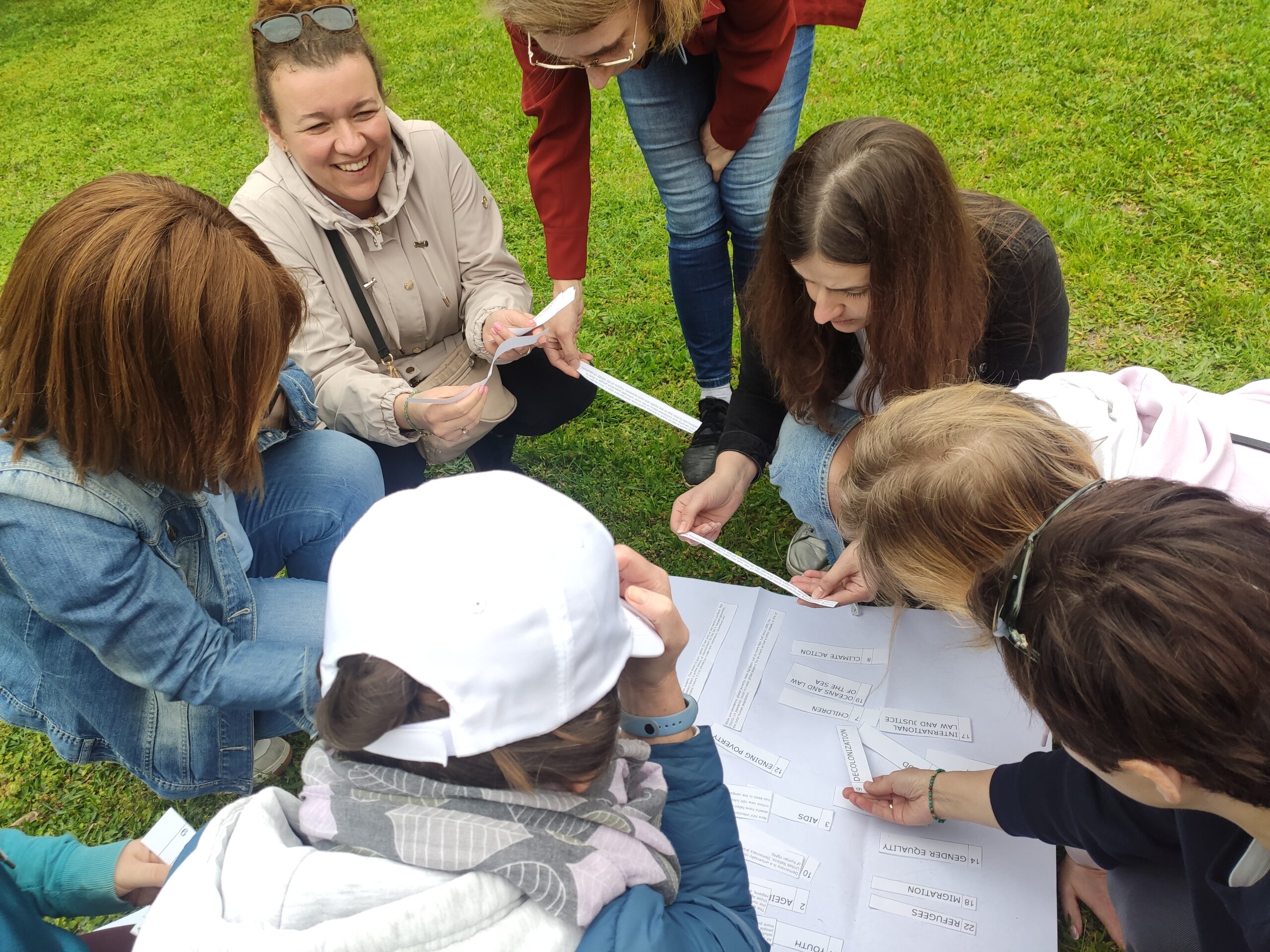During the week 9-16 march 2025, a School Principal from Germany attended a three-morning session on “Communication in the New Multicultural Society” to understand that culture and communication are strictly interlinked and impact everyday life, including teaching and learning.
On the first day, a non-formal outdoor session was conducted giving space to introduce the course topic. In this case, the Mediterranean Sea has been taken as a historical example to think about Globalization and Migration, looking at it as a prototype hub of intercultural exchanges and multicultural context. We opened a discussion about the importance of the individual efforts put into intercultural interaction and about the need to reflect on our view of the world and our own cultural identity and behaviours.
The participant had the opportunity to share the problems and cultural misunderstandings that teachers and students with different cultural backgrounds encounter in their everyday school lives. Starting from the need for communal understanding among different cultures, we reflected on a possible path through intercultural communication sensitivity and competence.
On the second day, we explored the steps to minimize the negative influences of culture on the effectiveness of communication, working on the need to recognize bias and stereotypes, transforming attitudes and developing flexibility and adaptability. In the afternoon, an outdoor joint session with the Polish participants of the training course “Joyful English” was held around the theme of Global Education, delving into the UN Global Issues and the Agenda 2030 SDGs. Participants had a great occasion to exchange solutions and worldviews, work and play together developing communication skills and competencies.
On the third day, we focused on Cross-cultural communication: in particular, we took a look at the ways to recognize barriers to intercultural communication and the strategies and techniques to overcome them. Finally, we explored the approach of Culturally Responsive Teaching, integrating the socio-cultural and communication skills to the necessary conditions to create an inclusive school environment. By the end of the day, the participant worked on a lesson plan integrating the cultural reflections and the theoretical approach taken during our training course.
In conclusion, the course has given the participant not just practical strategies and techniques, but also the soft skills and tools to implement cultural awareness among her teachers’ staff and students.
Author: Giusy Froio, JUMP Team


